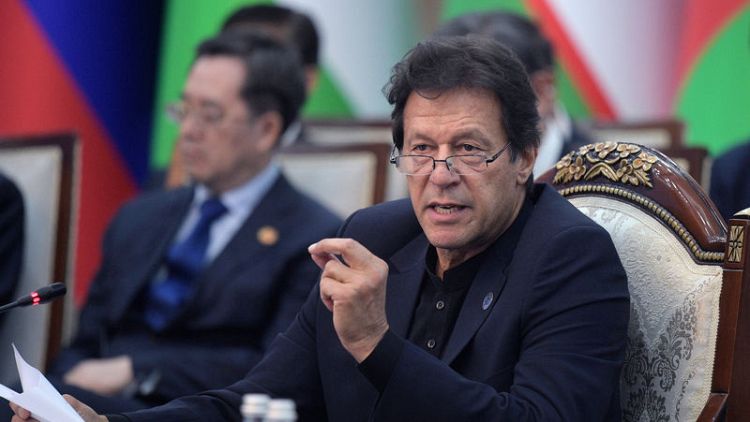By Asif Shahzad
ISLAMABAD (Reuters) - Pakistan on Monday increased natural gas prices by up to 200% on Monday, shortly before the International Monetary Fund (IMF) was due to decide whether to approve a $6 billion (£4.7 billion) loan for the country, which faces a balance of payment crisis.
Pakistan's Oil and Gas Regulatory Authority (OGRA) announced the new prices, the third increase since Imran Khan became prime minister last August.
The latest increases in the prices of gas and oil, as well as increased duties approved in the budget, are in effect slashing costly government subsidies.
The IMF has been urging the government to do more to balance its books, and its board is likely to meet on Wednesday to decide on the loan agreement.
The government says the gas price increase will help ease a deficit of over $1 billion at the state-owned natural gas suppliers Sui Northern and Sui Southern, both bleeding cash and subsidising consumers and industries.
Such price rises are politically sensitive in Pakistan, which has enjoyed decades of cheap gas from its own deposits.
However, over the past decade those reserves have not been enough and Pakistan experienced a number of shortages until it began importing liquefied natural gas (LNG), which is more expensive than domestic gas.
Pakistan's economic outlook has sharply deteriorated over the past year.
Growth is expected to fall to 3.3% in the fiscal year 2018/19, which ended on June 30, from 5.2% the previous year, and to fall further to 2.4% in 2020/21. Inflation, at 9% in May, is likely to rise to 11-13% during 2019/20 fiscal year, according to official forecasts.
Khan said Pakistan would feel the benefit of the boost to its foreign reserves from the IMF.
"You will see the stability," he told ARY TV.
(Reporting by Asif Shahzad; Editing by Kevin Liffey)
